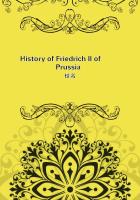In that elect company I was silent, partly because I was conscious of my youthful inadequacy, and partly because I preferred to listen. But Longfellow always behaved as if I were saying a succession of edifying and delightful things, and from time to time he addressed himself to me, so that I should not feel left out. He did not talk much himself, and I recall nothing that he said. But he always spoke both wisely and simply, without the least touch of pose, and with no intention of effect, but with something that I must call quality for want of a better word; so that at a table where Holmes sparkled, and Lowell glowed, and Agassiz beamed, he cast the light of a gentle gaiety, which seemed to dim all these vivider luminaries. While he spoke you did not miss Fields's story or Tom Appleton's wit, or even the gracious amity of Mr. Norton, with his unequalled intuitions.
The supper was very plain: a cold turkey, which the host carved, or a haunch of venison, or some braces of grouse, or a platter of quails, with a deep bowl of salad, and the sympathetic companionship of those elect vintages which Longfellow loved, and which he chose with the inspiration of affection. We usually began with oysters, and when some one who was expected did not come promptly, Longfellow invited us to raid his plate, as a just punishment of his delay. One evening Lowell remarked, with the cayenne poised above his bluepoints, "It's astonishing how fond these fellows are of pepper."
The old friend of the cavernous arm-chair was perhaps not wide enough awake to repress an "Ah?" of deep interest in this fact of natural history, and Lowell was provoked to go on. "Yes, I've dropped a red pepper pod into a barrel of them, before now, and then taken them out in a solid mass, clinging to it like a swarm of bees to their queen."
"Is it possible?" cried the old friend; and then Longfellow intervened to save him from worse, and turned the talk.
I reproach myself that I made no record of the talk, for I find that only a few fragments of it have caught in my memory, and that the sieve which should have kept the gold has let it wash away with the gravel.
I remember once Doctor Holmes's talking of the physician as the true seer, whose awful gift it was to behold with the fatal second sight of science the shroud gathering to the throat of many a doomed man apparently in perfect health, and happy in the promise of unnumbered days. The thought may have been suggested by some of the toys of superstition which intellectual people like to play with.
I never could be quite sure at first that Longfellow's brother-in-law, Appleton, was seriously a spiritualist, even when he disputed the most strenuously with the unbelieving Autocrat. But he really was in earnest about it, though he relished a joke at the expense of his doctrine, like some clerics when they are in the safe company of other clerics. He told me once of having recounted to Agassiz the facts of a very remarkable seance, where the souls of the departed outdid themselves in the athletics and acrobatics they seem so fond of over there, throwing large stones across the room, moving pianos, and lifting dinner-tables and setting them a-twirl under the chandelier. "And now," he demanded, "what do you say to that?" "Well, Mr. Appleton," Agassiz answered, to Appleton's infinite delight, "I say that it did not happen."















